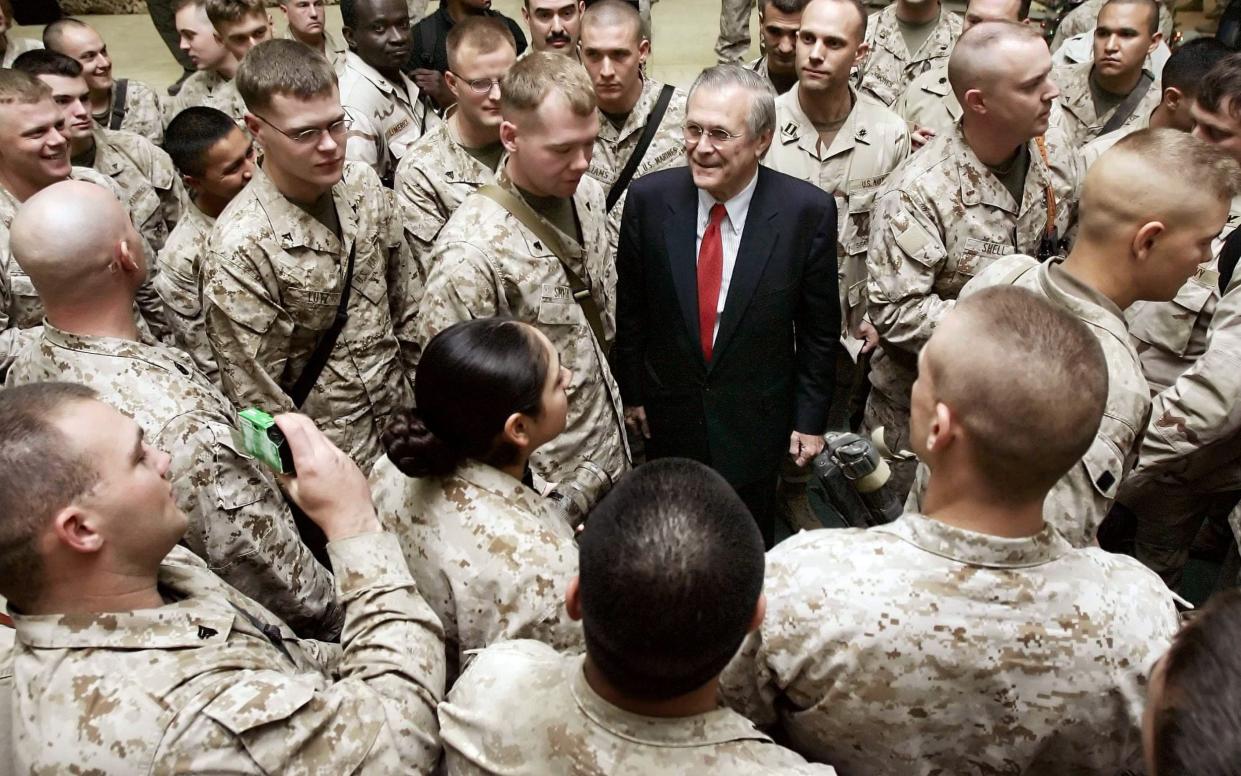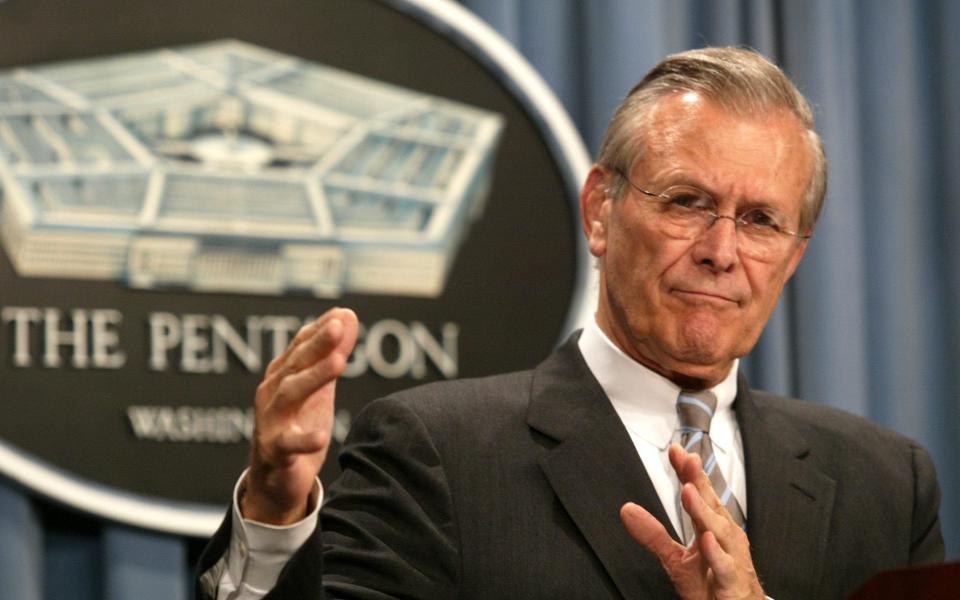Donald Rumsfeld, former US defence secretary, dies aged 88

- Oops!Something went wrong.Please try again later.
- Oops!Something went wrong.Please try again later.
Former US defence secretary Donald Rumsfeld, who led the nation into war in Afghanistan and Iraq during the presidency of George W Bush, has died at the age of 88 in New Mexico, his family announced Wednesday.
"History may remember him for his extraordinary accomplishments over six decades of public service, but for those who knew him best... we will remember his unwavering love for his wife Joyce, his family and friends, and the integrity he brought to a life dedicated to the country," the family said in a statement.
A statement from the family of Donald Rumsfeld: pic.twitter.com/AlKYxVvqgF
— Donald Rumsfeld (@RumsfeldOffice) June 30, 2021
Regarded by former colleagues as equally smart and combative, patriotic and politically cunning, Rumsfeld had a storied career in government under four presidents and nearly a quarter century in corporate America.
Rumsfeld is the only person to serve twice as Pentagon chief. The first time, in 1975-77, he was the youngest ever. The next time, in 2001-06, he was the oldest.
He made a brief run for the 1988 Republican presidential nomination, a spectacular flop that he once described as humbling for a man used to success at the highest levels of the government, including stints as White House chief of staff, U.S. ambassador and member of Congress.
For all Rumsfeld's achievements, it was the setbacks in Iraq in the twilight of his career that will likely etch the most vivid features of his legacy.

Nine months into his second tour as defence secretary, on Sept. 11, 2001, suicide hijackers attacked the World Trade Center in New York and the Pentagon, thrusting the nation into wars for which the military was ill-prepared. Rumsfeld oversaw the U.S. invasion of Afghanistan and toppling of the Taliban regime. Frequently presiding at televised briefings on the war, Rumsfeld became something of a TV star, applauded for his blunt talk and uncompromising style.
By 2002 the Bush administration's attention shifted to Iraq, which played no role in the Sept. 11 attacks. The war effort in Afghanistan took a back seat to Iraq, opening the way for the Taliban to make a comeback and prevent the U.S. from sealing the success of its initial invasion.
The U.S.-led invasion of Iraq was launched in March 2003. Baghdad fell quickly, but U.S. and allied forces soon became consumed with a violent insurgency. Critics faulted Rumsfeld for dismissing the pre-invasion assessment of the Army's top general, Eric Shinseki, that several hundred thousand allied troops would be needed to stabilise Iraq.
Rumsfeld twice offered his resignation to President George W. Bush in 2004 amid disclosures that U.S. troops had abused detainees at Iraq's Abu Ghraib prison _ an episode he later referred to as his darkest hour as defence secretary.
Not until November 2006, after Democrats gained control of Congress by riding a wave of antiwar sentiment, did Bush finally decide Rumsfeld had to go. He left office in December, replaced by Robert Gates.
Rumsfeld is survived by his wife, Joyce, three children and seven grandchildren.

